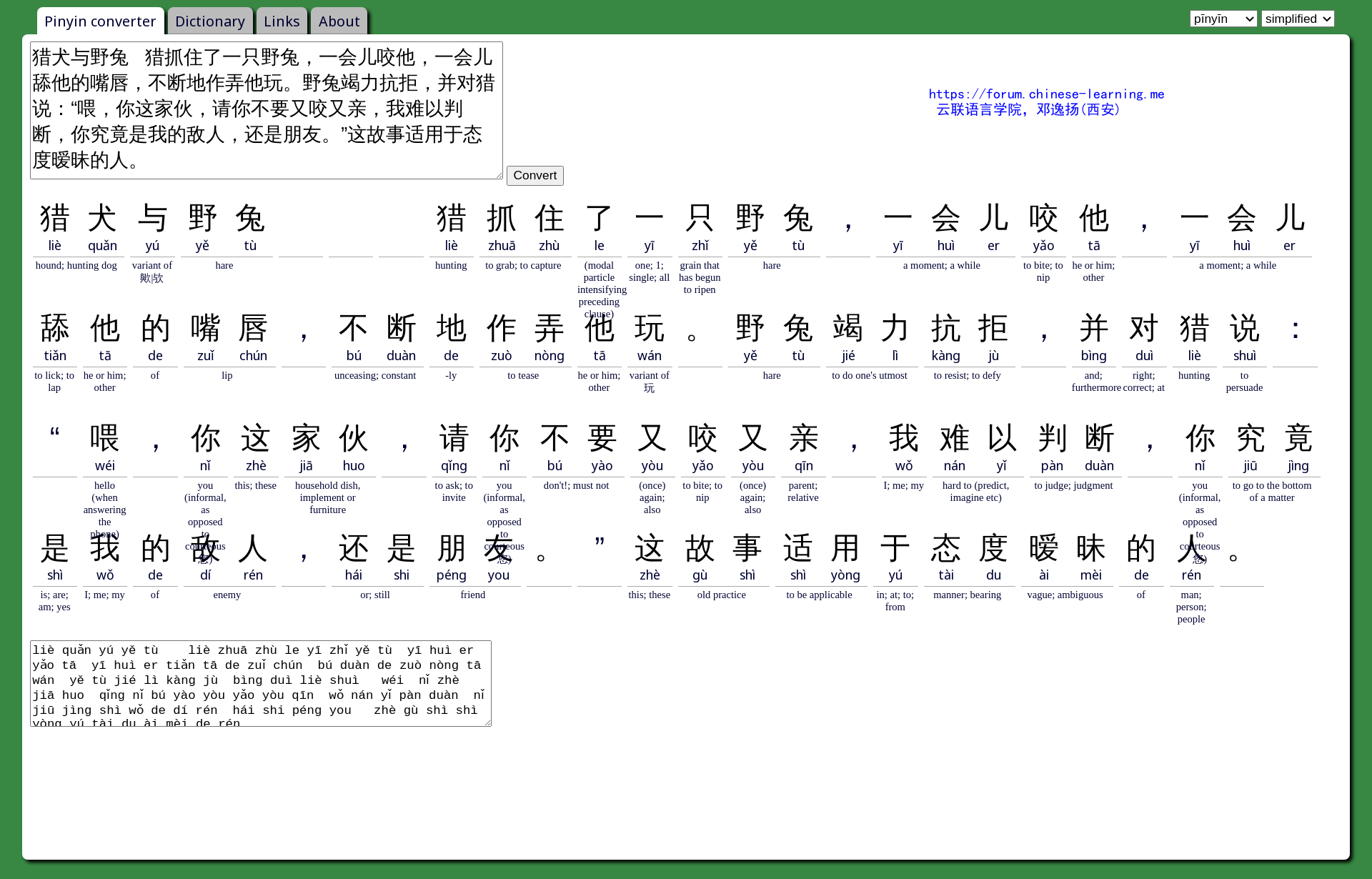
Show Pīnyīn
猎抓住了一只野兔,一会儿咬他,一会儿舔他的嘴唇,不断地作弄他玩。野兔竭力抗拒,并对猎说:“喂,你这家伙,请你不要又咬又亲,我难以判断,你究竟是我的敌人,还是朋友。”
这故事适用于态度暧昧的人。
liè zhuāzhù le yīzhī yětù , yīhuìr yǎo tā , yīhuìr tiǎn tā de zuǐchún , bùduàn dì zuònòng tā wán 。 yětù jiélì kàngjù , bìng duì liè shuō : “ wèi , nǐ zhè jiāhuo , qǐng nǐ bùyào yòu yǎo yòu qīn , wǒ nányǐ pànduàn , nǐ jiūjìng shì wǒ de dírén , háishi péngyou 。 ”
zhè gùshi shìyòng yú tàidùàimèi de rén 。

The hunter caught a hare, bit him for a while, licked his lips for a while, and kept teasing him. The hare tried its best to resist, and said to the hunter: "Hey, you fellow, please don't bite and kiss. I can't tell whether you are my enemy or my friend."
This story applies to people who are ambiguous.
El cazador atrapó una liebre, la mordió por un rato, se lamió los labios por un rato y siguió burlándose de él. La liebre hizo todo lo posible por resistirse y le dijo al cazador: "Oye, amigo, por favor no muerdas ni beses. No puedo decir si eres mi enemigo o mi amigo".
Esta historia se aplica a las personas que son ambiguas.
Le chasseur a attrapé un lièvre, l'a mordu pendant un moment, s'est léché les lèvres pendant un moment et a continué à le taquiner. Le lièvre a fait de son mieux pour résister et a dit au chasseur: "Hé, mon ami, s'il te plaît, ne mords pas et n'embrasse pas. Je ne peux pas dire si tu es mon ennemi ou mon ami."
Cette histoire s'applique aux personnes ambiguës.
狩人はうさぎを捕まえ、しばらく噛んで、しばらく唇をなめ、からかい続けました。うさぎは抵抗するために最善を尽くし、ハンターに言いました。
この話は、あいまいな人に当てはまります。
Der Jäger fing einen Hasen, biss ihn eine Weile, leckte sich eine Weile die Lippen und neckte ihn weiter. Der Hase versuchte sein Bestes zu widerstehen und sagte zu dem Jäger: "Hey, du Kerl, bitte beiße und küsse nicht. Ich kann nicht sagen, ob du mein Feind oder mein Freund bist."
Diese Geschichte gilt für Menschen, die mehrdeutig sind.